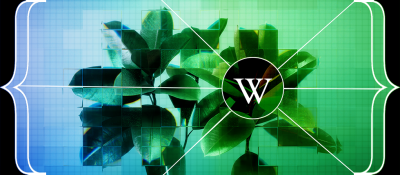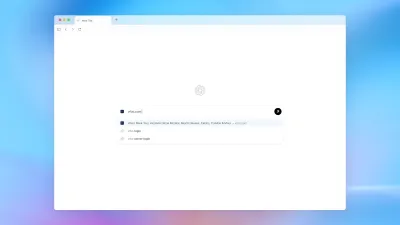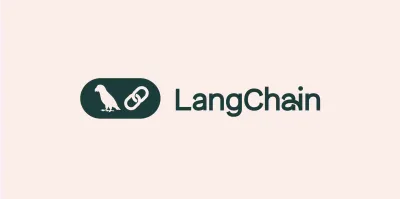Wikimedia's Grand Vision: Unlocking Its Vast Data Universe for Smarter Discovery by Humans and AI
By: @devadigax

The Wikimedia Foundation, the non-profit organization behind Wikipedia and its sister projects, is embarking on an ambitious initiative to fundamentally transform how its immense repository of human knowledge can be accessed and utilized. The goal is clear: to make the vast, interconnected web of information housed within Wikimedia's projects more readily searchable and understandable, not just for human users but, crucially, for the burgeoning field of Artificial Intelligence. This strategic pivot promises to revolutionize knowledge discovery, offering unprecedented opportunities for AI development and a richer experience for users worldwide.
Consider the late English writer Douglas Adams, revered as the author of the iconic 1979 book *The Hitchhiker’s Guide to the Galaxy*. While his Wikipedia entry provides a comprehensive overview of his life and work, it merely scratches the surface of the data available across Wikimedia’s ecosystem. The challenge is not just what's explicitly written in an article's prose, but the myriad of structured data points, images, and interconnections residing in projects like Wikidata, Wikimedia Commons, and various language Wikipedias. For instance, while his birth sign, Pisces, might be a discrete data point within Wikidata, extracting such specific, nuanced information programmatically or through a simple search query can be surprisingly complex, even for advanced AI. Wikimedia's new endeavor seeks to bridge this gap, ensuring that every piece of information, from the mundane to the profound, becomes a discoverable asset.
The current paradigm of accessing Wikimedia's knowledge, primarily through its web interface, is highly effective for human navigation. However, for AI systems designed to process, analyze, and synthesize vast amounts of information, this method presents significant limitations. AI models thrive on structured, machine-readable data that can be queried, linked, and understood semantically. While Wikimedia has made strides with projects like Wikidata, which provides a free and open knowledge base that can be read and edited by both humans and machines, the full potential of its distributed data remains largely untapped by the broader AI community. This initiative aims to standardize and enhance programmatic access, potentially through improved APIs, more robust SPARQL endpoints for Wikidata, and new interfaces that facilitate semantic search and knowledge graph traversal.
For AI developers and researchers, this move is nothing short of a game-changer. The Wikimedia ecosystem represents one of the largest, most diverse, and highest-quality openly licensed datasets in existence. This trove of information is invaluable for training a new generation of AI models, particularly large language models (LLMs), knowledge graph construction, semantic search engines, and advanced question-answering systems. By making this data more accessible, Wikimedia is providing a critical resource that can help mitigate some of the common challenges faced by AI, such as data bias and the "hallucination" problem. The foundation's commitment to neutrality, verifiable sources, and community-driven curation offers a unique opportunity to train AI systems on a dataset that is both vast and rigorously vetted, potentially leading to more accurate, reliable, and less biased AI applications.
Furthermore, enhanced access to Wikimedia's data will enable AI to perform more sophisticated fact-checking and verification. As misinformation proliferates, AI-powered tools that can swiftly and accurately cross-reference information against a trusted, openly available source like Wikipedia become indispensable. This could lead to the development of more robust verification systems for news
Consider the late English writer Douglas Adams, revered as the author of the iconic 1979 book *The Hitchhiker’s Guide to the Galaxy*. While his Wikipedia entry provides a comprehensive overview of his life and work, it merely scratches the surface of the data available across Wikimedia’s ecosystem. The challenge is not just what's explicitly written in an article's prose, but the myriad of structured data points, images, and interconnections residing in projects like Wikidata, Wikimedia Commons, and various language Wikipedias. For instance, while his birth sign, Pisces, might be a discrete data point within Wikidata, extracting such specific, nuanced information programmatically or through a simple search query can be surprisingly complex, even for advanced AI. Wikimedia's new endeavor seeks to bridge this gap, ensuring that every piece of information, from the mundane to the profound, becomes a discoverable asset.
The current paradigm of accessing Wikimedia's knowledge, primarily through its web interface, is highly effective for human navigation. However, for AI systems designed to process, analyze, and synthesize vast amounts of information, this method presents significant limitations. AI models thrive on structured, machine-readable data that can be queried, linked, and understood semantically. While Wikimedia has made strides with projects like Wikidata, which provides a free and open knowledge base that can be read and edited by both humans and machines, the full potential of its distributed data remains largely untapped by the broader AI community. This initiative aims to standardize and enhance programmatic access, potentially through improved APIs, more robust SPARQL endpoints for Wikidata, and new interfaces that facilitate semantic search and knowledge graph traversal.
For AI developers and researchers, this move is nothing short of a game-changer. The Wikimedia ecosystem represents one of the largest, most diverse, and highest-quality openly licensed datasets in existence. This trove of information is invaluable for training a new generation of AI models, particularly large language models (LLMs), knowledge graph construction, semantic search engines, and advanced question-answering systems. By making this data more accessible, Wikimedia is providing a critical resource that can help mitigate some of the common challenges faced by AI, such as data bias and the "hallucination" problem. The foundation's commitment to neutrality, verifiable sources, and community-driven curation offers a unique opportunity to train AI systems on a dataset that is both vast and rigorously vetted, potentially leading to more accurate, reliable, and less biased AI applications.
Furthermore, enhanced access to Wikimedia's data will enable AI to perform more sophisticated fact-checking and verification. As misinformation proliferates, AI-powered tools that can swiftly and accurately cross-reference information against a trusted, openly available source like Wikipedia become indispensable. This could lead to the development of more robust verification systems for news
Comments
Related News

OpenAI Unveils ChatGPT Atlas: Your Browser Just Became Your Smartest AI Assistant
In a move poised to fundamentally reshape how we interact with the internet, OpenAI has officially launched ChatGPT Atlas, a gr...
@devadigax | 22 Oct 2025
In a move poised to fundamentally reshape how we interact with the internet, OpenAI has officially launched ChatGPT Atlas, a gr...
@devadigax | 22 Oct 2025

Netflix Doubles Down on Generative AI, Challenging Hollywood's Divide Over Creative Futures
In a move that underscores a growing chasm within the entertainment industry, streaming giant Netflix is reportedly going "all ...
@devadigax | 21 Oct 2025
In a move that underscores a growing chasm within the entertainment industry, streaming giant Netflix is reportedly going "all ...
@devadigax | 21 Oct 2025

AI Agent Pioneer LangChain Achieves Unicorn Status with $1.25 Billion Valuation
LangChain, the innovative open-source framework at the forefront of building AI agents, has officially joined the exclusive clu...
@devadigax | 21 Oct 2025
LangChain, the innovative open-source framework at the forefront of building AI agents, has officially joined the exclusive clu...
@devadigax | 21 Oct 2025

Meta Boots ChatGPT From WhatsApp: A Strategic Play for AI Dominance and Walled Gardens
In a significant move that reshapes the landscape of AI chatbot accessibility, OpenAI has officially confirmed that its popular...
@devadigax | 21 Oct 2025
In a significant move that reshapes the landscape of AI chatbot accessibility, OpenAI has officially confirmed that its popular...
@devadigax | 21 Oct 2025

Meta's New AI Peeks Into Your Camera Roll: The 'Shareworthy' Feature Raises Privacy Eyebrows
Meta, the parent company of Facebook, has rolled out a new, somewhat controversial artificial intelligence feature to its users...
@devadigax | 18 Oct 2025
Meta, the parent company of Facebook, has rolled out a new, somewhat controversial artificial intelligence feature to its users...
@devadigax | 18 Oct 2025
 AI Tool Buzz
AI Tool Buzz